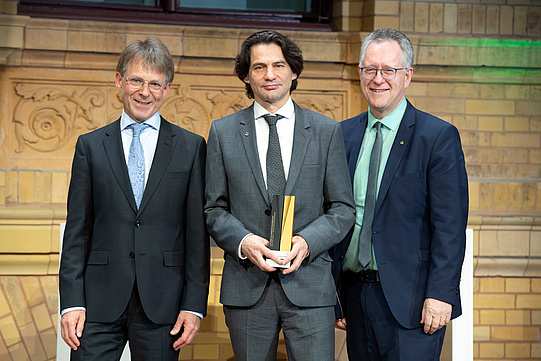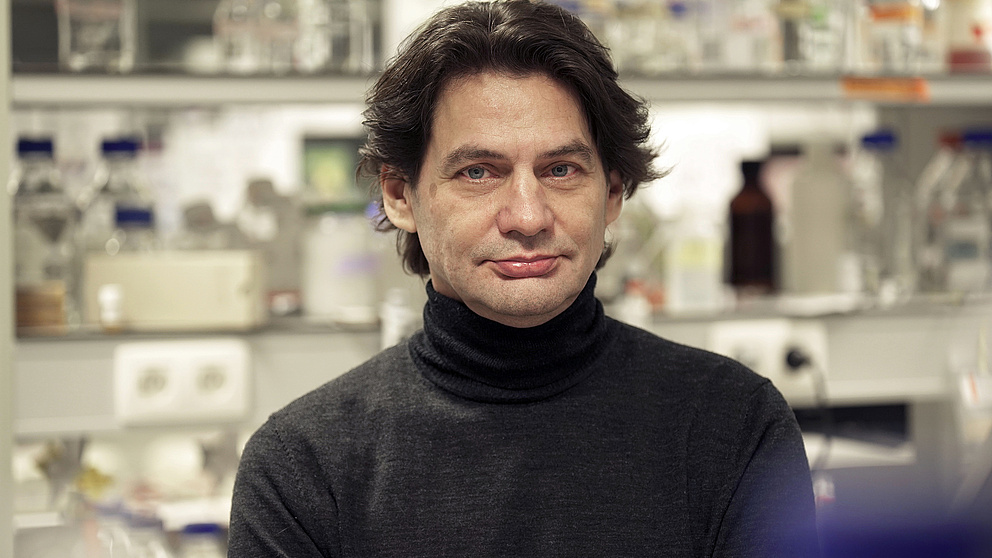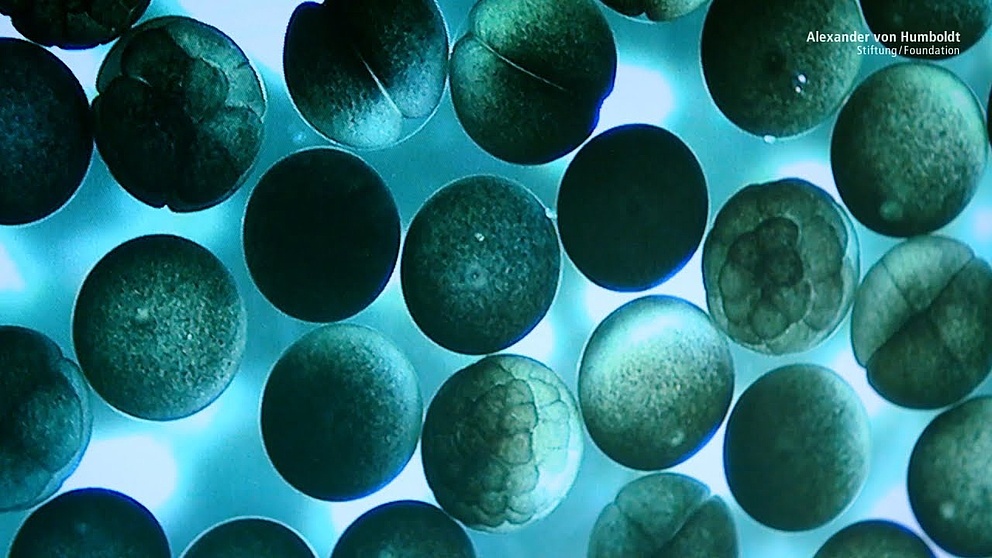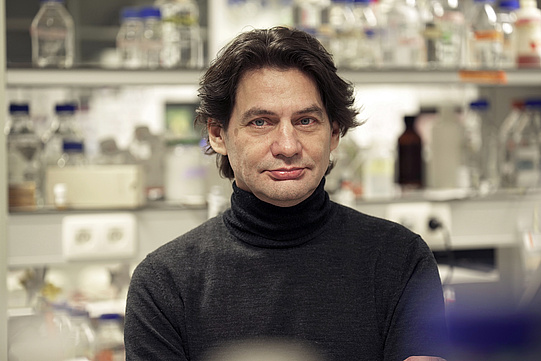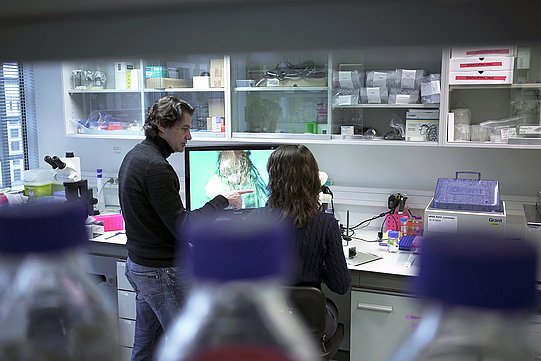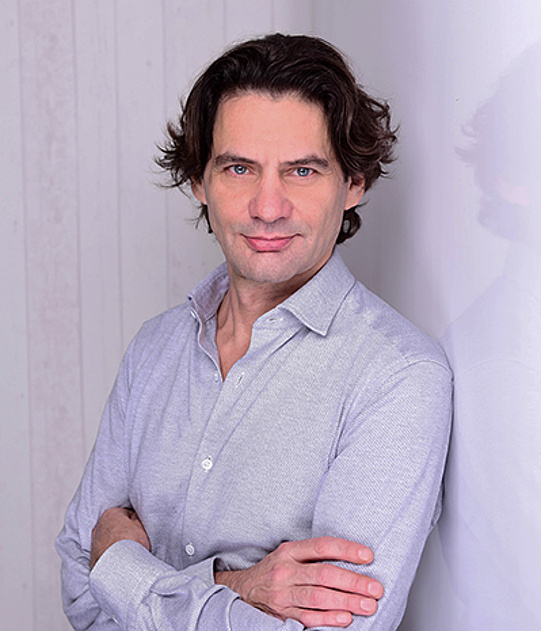Jump to the content
- {{#headlines}}
- {{title}} {{/headlines}}
Molecular Neuroscience
In the human brain, some 86 billion nerve cells are connected with one another in complex networks. Given the numbers, it seems perfectly plausible that things sometimes go wrong – but the consequences are grave. Malfunctions in the wiring of the brain are often the cause of neurological and neuropsychiatric disorders. Dietmar Schmucker has developed methods and techniques that help us to understand which molecular mechanisms underpin the wiring of the nervous system. His fundamental research is therefore also of major relevance to medicine.
Schmucker has broken new ground in the thinking about brain research as well as its technical progress. He is seen as a pioneer of and world-leader in molecular neuroscience. Whilst still a postdoc, he achieved a milestone in neurobiology by being the first to elucidate the meaning of the DSCAM gene in the fruit fly. Later, he was able to demonstrate its role as a central player in the wiring of the brain and transfer his research method to vertebrates, too.
Brief bio
Prof. Dr. Dietmar Schmucker was born in Germany. Since 2009, he has been a professor and group leader at VIB (Vlaams Instituut voor Biotechnologie) and the Neuronal Wiring Laboratory in the Center for Brain and Disease Research at K.U. Leuven, Belgium. In 1996, after completing his doctorate at the Max Planck Institute for Biophysical Chemistry in Göttingen, he became a postdoc in the United States, initially at Rockefeller University in New York and then at the University of California, Los Angeles (UCLA). He subsequently became an assistant professor and later an associate professor at Harvard Medical School in Boston. In 2011, Schmucker was elected a member of the European Molecular Biology Organization (EMBO). In September 2019 he took up his position as a Humboldt Professor at the University of Bonn.

Kontakt
Presse, Kommunikation und Marketing
Tel.: +49 228 833-144
Fax: +49 228 833-441
presse[at]avh.de
Photos and videos
